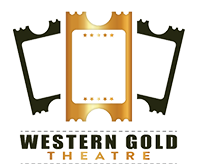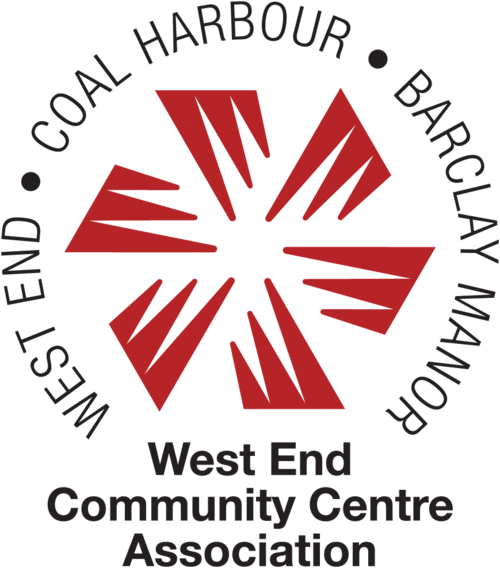A CLOSER LOOK
/A HYDRO SUB-STATION FOR NELSON PARK
West Enders Are Concerned, But Is It Too Late To Stop The Project?
by John Streit /
An artist’s vision of a new Lord Roberts school and playground. (Courtesy of BC Hydro)
(click on any image to enlarge)
Nelson Park has a little something for everybody, packing a huge amount of popular public amenities into a full city block. That includes the largest dog park in the neighborhood, community gardens, elementary school, two playgrounds, a stormwater feature, automatic toilet, and ample green space to drop a towel on a hot summer’s day or comfortably shoot a scene for a movie or TV series with a full production crew.
But in a couple of years, Nelson Park could be bustling with construction activity.
BC Hydro is two steps away from officially being allowed to proceed with its multi-million dollar West End Substation Project in the northwest corner, currently the home of the Lord Roberts Annex and parking lot. The province’s power authority needs the permission of the Vancouver Park Board to secure rights-of-way and start building the 37-metre deep subterranean facility, burying five underground power cables and connecting up the two to the electrical grid. BC Hydro also needs an easement for shared driveway access from Bute Street into the underground substation and a replacement school parkade.
The Park Board tells TWEJ “Park Board staff and BC Hydro continue to discuss and clarify the terms of the request before formally presenting it to the Board.”
At that point, it could go to a vote by elected officials as early as the end of the year. Park Board staff have been studying an impact assessment and mitigation options study about Nelson Park prepared in 2018 by several outside firms.
Kyle Donaldson with BC Hydro media relations and issues management says public consultation will follow. “But it is based on timing, and outcomes of the decision by the Vancouver Park Board on our request for rights-of-way. Public consultation will continue throughout the development and construction of the underground substation. The start of construction for the West End Substation could be as early as fall 2023,” he says. Donaldson adds the pandemic has not delayed this project. “We’re working with the Vancouver Park Board to optimize the proposed rights-of-way layout to minimize the impact on the park, while still meeting our technical requirements,” he says. Hydro would have to provide compensation to the City of Vancouver (property owner) and Park Board (property operator) for the rights-of-way in Nelson Park.
Nelson Park today. (James Oakes Photo)
Quentin Wright is the executive director of the Mole Hill Community Housing Society (read more in this moth’s Community Spotlight). This historic block includes 170 social housing units and three daycares in some of the West End’s few remaining Victorian and Edwardian homes. He was part of a large group of stakeholders and community representatives (including the Dr. Peter Centre, YMCA, and Farmers Market) which met with the Park Board over a two-day period in 2019. “While participants offered a variety of different opinions about the impacts on the park, there was one item which was universally expressed: Do not permit the power lines to be routed under the park. We are not aware of any reason why the cables cannot exit directly to Nelson Street and follow the roads to their destinations and there are serious safety concerns associated with permitting this to happen,” he says.
Wright fears children’s exposure to electromagnetic radiation (EMR) due to shallow underground cables - often linked to cancer, he claims. “Is there 100 percent confidence that our regulations regarding exposure to electromagnetic radiation keep our children and communities safe?” he asks.
He cites a 2017 study prepared for the Park Board by an engineering firm that reported that “the risk of impacts from EMF at Nelson Park is low,” making a comparison with Cathedral Square in downtown Vancouver.
Underground power lines are located throughout the city, including under David Lam and Charleston parks.
“‘Low’ impact is not reassuring to the community, who need to experience “zero” impacts from EMF,” Wright says. “At Nelson Park, the cables will be four feet underground. This park is used by people sunbathing, picnicking, reading, or playing. Homeless people sleep in the park overnight. BC Hydro’s proposal places regular park users in very close proximity to underground cables, exposing them to electromagnetic fields for hours at a time.”
The layout of the proposed sub-station. (Courtesy of BC Hydro)
BC Hydro says it recognizes that there are questions and concerns about EMF and “takes them seriously.” In a response memo to the Park Board, Hydro says two reviews concluded: “there were no health and safety risks related to these very low levels of EMF.” It then said it would “commit to additional mitigation measures to alleviate negative public perception.”
That includes burying the cables deeper and adding magnetic field shielding at Nelson Park, dropping EMF levels by 75 percent. Hydro also promises to commission an independent study to look into current EMF levels and make that report public and “strategically locate highly used park features away from the transmission lines, as well as use innovative landscape designs and barriers.”
The latter mitigation measure was a response to Vancouver Coastal Health.
Wright says no further EMF modeling has been shared with the public, as recommended by the report to the Park Board. “How can the public have confidence that the project is safe if the Parks Board is not following their own consultants’ recommendations?” He’s asking the commissioners to vote against the project. “We request that the Vancouver Parks Board makes a stand for community safety and prohibits access to the park for the purpose of underground power cables,” he says.
A key component to the West End Substation Project has been Hydro’s pledge to pay the Vancouver School Board $75 million in property rights at Nelson Park for a replacement Lord Roberts Annex and a new elementary school plus child care spaces at Coal Harbor. Kyle Donaldson with BC Hydro says most of the money has already been paid.
“The compensation package was based on market value for the underground parcel plus additional funds for rights-of-way, restrictive covenant, construction lease, and a playing field for the school. To date the Vancouver School Board has received $65 million,” he says. The owing $10 million is pegged for the construction lease of a new Lord Roberts Annex plus a new playing field (located directly above the substation) along Nelson Street.
Wright feels the loss of the Lord Roberts Annex during construction is extremely disappointing and believes there is no guarantee the Vancouver School Board (VSB) will even replace it. TWEJ reached out to the VSB which responded in an email, “Students from Lord Roberts Annex will temporarily attend the school to be built in Coal Harbor, while the substation and the new school at the Lord Roberts Annex site are constructed.” We asked about an estimated completion date for a new annex but did not get an answer.
MaryAnne MacNeill and her husband live in a heritage house which operates as Ashby House Bed & Breakfast on Bute Street, within a block of Nelson Park. It’s the house with the incredible pirate ship display each Halloween. They’ve been proud West Enders for almost 50 years. “We have raised two children here and worked hard at creating a community presence, investing in social capital. We started by gardening outside our rental apartment and putting up Christmas Lights. When we needed more room, we bought a run-down house and have spent over 30 years restoring it,” she says.
The pair are self-proclaimed civic activists and were part of the West End Traffic Committee over two years to help create the first West End Parking Plan. “Our concern about the Hydro project plan was that it was presented with little actual community involvement or input. By the time we had the information, we were told it was too late to stop or alter the project. That a decision was made that would disrupt the use of one of the few neighborhood parks, shut down a local school, for an indeterminate amount of time and present possible environmental hazards, seemed incomprehensible,” she says.
MacNeill says she signed a Nelson Park petition, spoke with concerned Lord Roberts parents and City of Vancouver representatives, but felt the decision to go ahead with the substation had already been made.
“The cash-strapped VSB would get two new schools for subterranean space, Hydro would get its substation to service the many new giant condo developments, and eventually we would have Nelson Park and a school back, never mind the disruption to the community,” she says. McNeill would like to see the substation built somewhere else but doesn’t think the project can be stopped. “How about under one of those giant condo buildings or the St. Paul's Hospital site once it is vacant?”
But Kyle Donaldson at BC Hydro believes the West End Substation Project will provide significant benefits to the community. “We look forward to working with the Vancouver School Board, Vancouver Parks Board and the City of Vancouver once we move into further stages of consultation, planning, and development,” he says.
In its response memo to the Parks Board, Hydro believes its plan for Nelson Park will “deliver an out-of-sight underground substation all while avoiding the need to use a property currently used for housing.” The power company figures an above-ground substation would have taken up half a city block at a height of 3-6 stories.
Construction of the substation is expected to take five years with three of those years involving excavation and visible active construction, “similar to the construction of any large condo tower,” according to Hydro. The remaining two years would mostly be underground, installing all the substation equipment. BC Hydro expects construction of the underground power lines would be completed in one or two months in the winter when Nelson Park is not heavily used and the farmers market is not being held.







